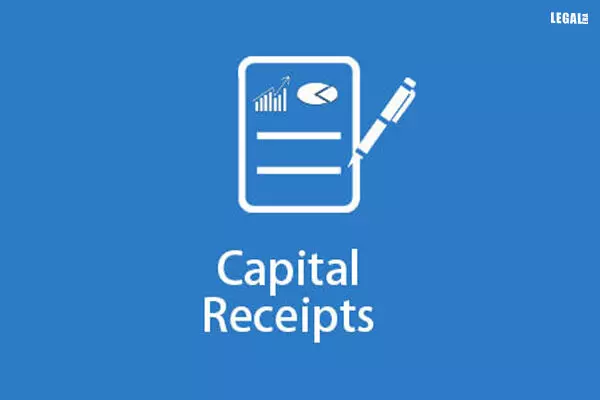- Home
- News
- Articles+
- Aerospace
- Agriculture
- Alternate Dispute Resolution
- Banking and Finance
- Bankruptcy
- Book Review
- Bribery & Corruption
- Commercial Litigation
- Competition Law
- Conference Reports
- Consumer Products
- Contract
- Corporate Governance
- Corporate Law
- Covid-19
- Cryptocurrency
- Cybersecurity
- Data Protection
- Defence
- Digital Economy
- E-commerce
- Employment Law
- Energy and Natural Resources
- Entertainment and Sports Law
- Environmental Law
- FDI
- Food and Beverage
- Health Care
- IBC Diaries
- Insurance Law
- Intellectual Property
- International Law
- Know the Law
- Labour Laws
- Litigation
- Litigation Funding
- Manufacturing
- Mergers & Acquisitions
- NFTs
- Privacy
- Private Equity
- Project Finance
- Real Estate
- Risk and Compliance
- Technology Media and Telecom
- Tributes
- Zoom In
- Take On Board
- In Focus
- Law & Policy and Regulation
- IP & Tech Era
- Viewpoint
- Arbitration & Mediation
- Tax
- Student Corner
- AI
- ESG
- Gaming
- Inclusion & Diversity
- Law Firms
- In-House
- Rankings
- E-Magazine
- Legal Era TV
- Events
- News
- Articles
- Aerospace
- Agriculture
- Alternate Dispute Resolution
- Banking and Finance
- Bankruptcy
- Book Review
- Bribery & Corruption
- Commercial Litigation
- Competition Law
- Conference Reports
- Consumer Products
- Contract
- Corporate Governance
- Corporate Law
- Covid-19
- Cryptocurrency
- Cybersecurity
- Data Protection
- Defence
- Digital Economy
- E-commerce
- Employment Law
- Energy and Natural Resources
- Entertainment and Sports Law
- Environmental Law
- FDI
- Food and Beverage
- Health Care
- IBC Diaries
- Insurance Law
- Intellectual Property
- International Law
- Know the Law
- Labour Laws
- Litigation
- Litigation Funding
- Manufacturing
- Mergers & Acquisitions
- NFTs
- Privacy
- Private Equity
- Project Finance
- Real Estate
- Risk and Compliance
- Technology Media and Telecom
- Tributes
- Zoom In
- Take On Board
- In Focus
- Law & Policy and Regulation
- IP & Tech Era
- Viewpoint
- Arbitration & Mediation
- Tax
- Student Corner
- AI
- ESG
- Gaming
- Inclusion & Diversity
- Law Firms
- In-House
- Rankings
- E-Magazine
- Legal Era TV
- Events
ITAT rules on capital receipts
The Coram refers the matter back to the assessing officer for fresh adjudication
The Ahmedabad Bench of the Income Tax Appellate Tribunal (ITAT) has held that the amount of compensation received by the assessee for sterilization of the profit-earning source is a capital receipt. It is not chargeable to tax in the hands of the assessee.
The appellant, Khevana Securities and Finstock Limited is a company dealing in shares and securities.
In October 2005, two companies Jasani Reality Pvt. Ltd (JRPL) and Emgeen Holding Pvt. Ltd (EHPL) entered into an agreement to develop a property located in Goregaon, Mumbai.
In 2010 JRPL decided to sell its part of the share of the property to the assessee. They entered an agreement with the assessee company for Rs.63 crores and the latter made a down payment of Rs.6,30,000.
Later, the assessee and JRPL entered into a relinquishment agreement wherein it was decided that JRPL would pay Rs.40 crore to the assessee. It would also return the down payment to the assessee in lieu of relinquishment of the rights in the property. As per the agreement, all dues were to be paid before January 2011.
The assessee received the payments - a cheque of Rs.2.5 crores (Financial Year 2010-2011); a cheque of Rs.2 crores (Financial Year 2011-2012); and 3,55,000 shares of JRPL @ 1000 having a face value of Rs.10 and a premium of Rs.990 (September 2011).
Subsequently, the assessee sold the shares of JRPL to Corora Investment Private Limited @ Rs.11 to the tune of 39,05,000. It claimed that the actual benefit derived by it in the transaction was Rs.4,89,05,000 (2.5 cr + 2 cr + 39.05 lakh), but it was erroneously shown as Rs.4,83,05,000.
The assessee treated the liquidated damages in its books of accounts as capital receipt not chargeable to tax. It submitted that since its main business was dealing in shares and securities, the business receipts did not represent liquidated damages.
However, the assessing officer (AO) was not satisfied with the submission of the assessee. He held that the amount of compensation received by the assessee for Rs.40 represented business transactions. Hence, it could not be considered as capital receipt.
Also, the income accrued in the year under consideration as the relinquishment deed was signed in December 2010, corresponding to the assessment year 2011-2012. The AO made an addition of Rs.40 crores to the total income of the assessee.
Aggrieved by the situation, the assessee pleaded before the Commissioner of Income Tax (Appeals), who rejected the contention and confirmed the order of the AO. Thereafter, the assessee appealed before ITAT.
The Coram of Mahavir Prasad (judicial member) and Waseem Ahmed (accountant member) referred the matter back to the AO for fresh adjudication. It ruled, "It appears that the assessee has received the compensation, which is not chargeable to tax as per the principles laid down by an earlier Supreme Court order."
It added, "Going by that, we hold that the amount of compensation received by the assessee is not chargeable to tax in the hands of the assessee. Therefore, the appeal filed by the assessee is partly allowed."





